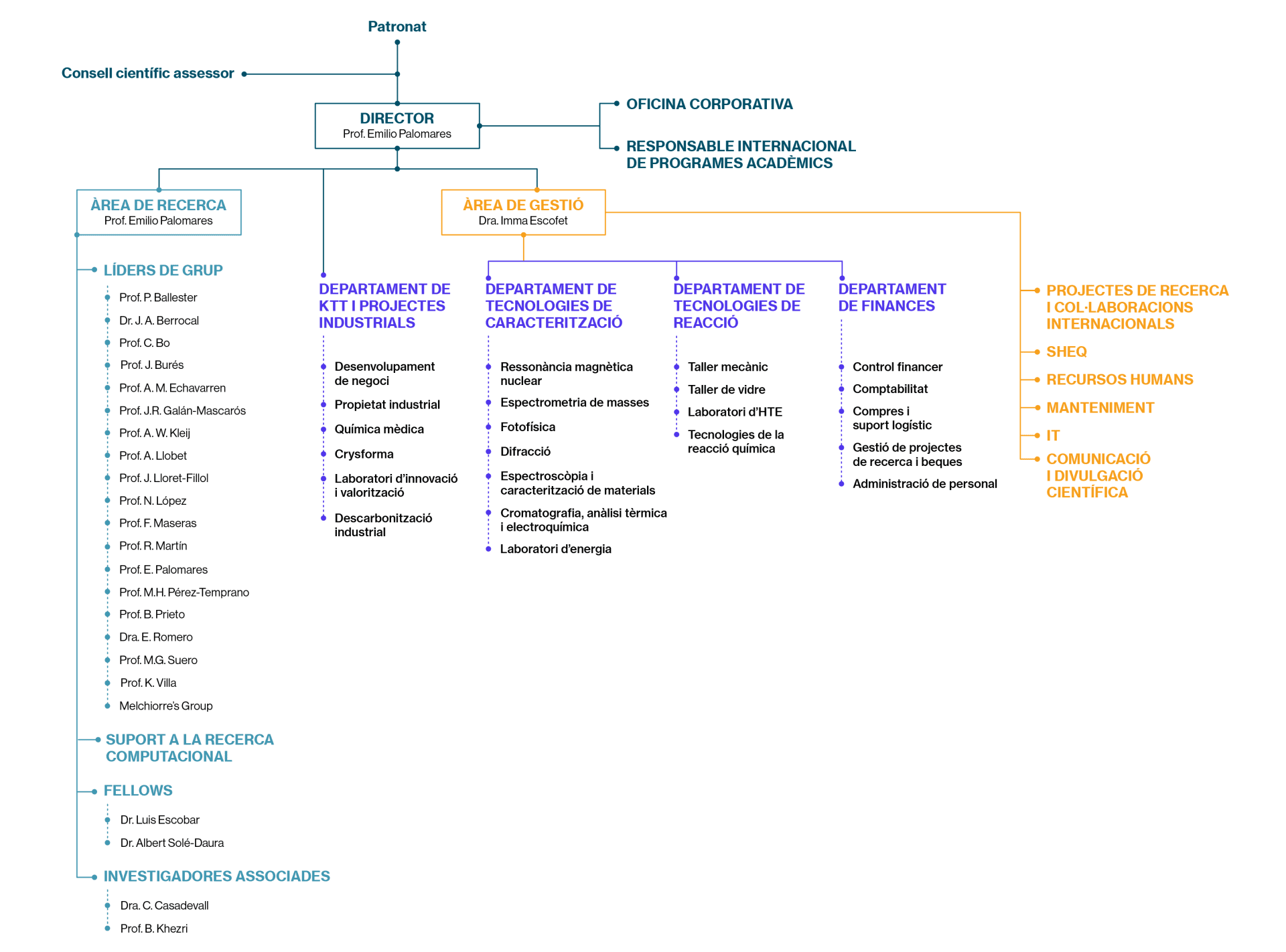Organigrama
Según el organigrama institucional, el ICIQ se estructura en dos grandes áreas: Investigación, bajo la dirección del Prof. Emilio J. Palomares Gil, y Gestión, liderada por la Dra. Imma Escofet.
Área de Investigación
Esta área comprende 19 grupos de investigación independientes, cada uno encabezado por un investigador principal. Además, cuenta con la participación de dos investigadoras asociadas y dos líderes de grupo junior. Asimismo, integra el Departamento de Transferencia de Conocimiento y Tecnología y Proyectos Industriales (KTT), encargado de promover la colaboración con el sector industrial y de facilitar la aplicación práctica de los avances científicos.
Área de Gestión
La gestión se articula en tres departamentos principales: Tecnologías de Caracterización, Tecnologías de Reacción y el Departamento Financiero. A estos se suman seis unidades de apoyo, centradas en funciones clave como Proyectos de Investigación y Colaboraciones Internacionales, SHEQ (Seguridad, Salud, Medio Ambiente y Calidad), Recursos Humanos, Mantenimiento, Informática, así como Impacto, Comunicación y Estrategia.
Esta estructura organizativa asegura una gestión eficiente y un entorno de investigación de excelencia, con una marcada orientación hacia la innovación y la transferencia del conocimiento.


Creemos un futuro más brillante
Únete a nuestro equipo para trabajar con investigadores de renombre, emprender proyectos innovadores y contribuir a avances científicos significativos.
Únete a nosotros!













